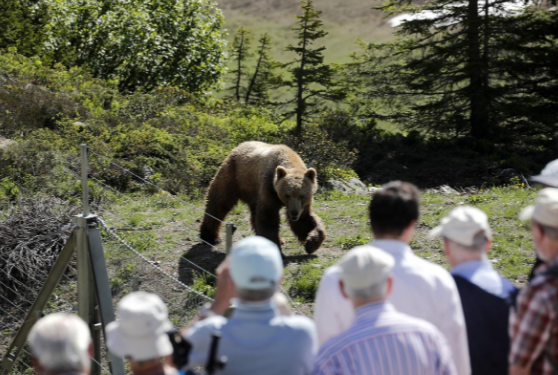Arosa (Switzerland): The prospect of searing heatwaves driving holidaymakers to cool mountains and children asking grandparents about their memories of snow is focusing minds in Alpine ski resorts on the implications of climate change.
With global warming widely expected to slash snowfall, especially at lower levels, the Swiss tourism industry is looking for ways to preserve a lucrative business brutally exposed to the weather.
Enter Napa, Serbia’s last circus bear.
The Arosa ski resort in eastern Switzerland has created a $6.5 million refuge hosting Napa and two other bears rescued from cages at restaurants in Albania to help draw summer visitors and reduce its reliance on skiers and snowboarders.
School classes, families and a group of army veterans celebrating an 80th birthday were visiting one recent summer day, helping the park toward what Arosa tourism director Pascal Jenny said was a target of 50,000 visitors this year.
Arosa has reinvented itself before— moving to winter tourism in the 1930s after decades as a health resort for tuberculosis patients. But with nearly 6,20,000 overnight stays in winter last year, more than three times the summer total — it will not be easy.
Jenny, who fears a sharp decline in snowfall over the next 20 or 30 years, is hedging his bets.
“What gives us some hope is that artificial snow is making strong technical advances. I can make snow now at 5 degrees above freezing,” he said, standing on an observation platform beside the Weisshorn cable car which gives a sweeping view of the snow-capped Alpine valley.
His two-pronged approach highlights the dilemma faced by mountain resorts — how to retain profits as they embark on what the Organisation for Economic Co-Operation and Development (OECD) says needs to be a global rethink of tourism.
“The consequences of climate change will be felt across the travel and tourism sector over the coming decades,” the OECD, whose member countries represent 80 per cent of the world’s trade and investment, said in a 2018 study of megatrends in tourism.







































